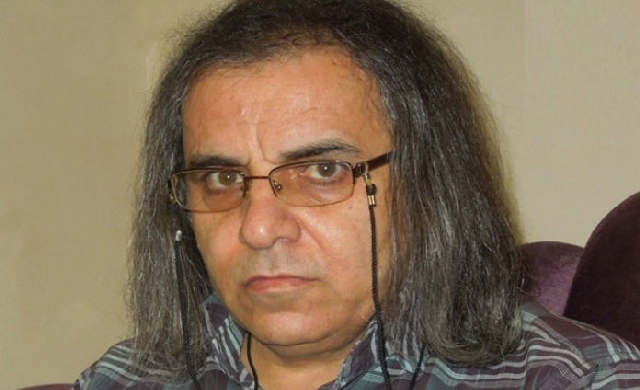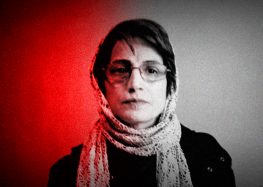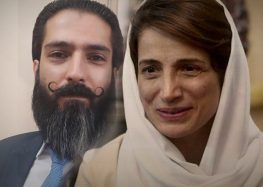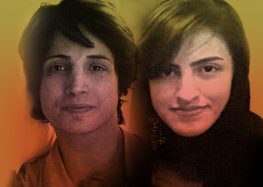Kurdish Political Prisoner in Iran on Hunger Strike to Protest New Charges

Mohammad Sediq Kaboudvand, a prominent Kurdish human rights activist who is in his ninth year of incarceration at Tehran’s Evin Prison, has gone on hunger strike to protest the new charges that have been brought against him.
Kaboudvand’s wife, Parinaz Baghban Hassani, told the International Campaign for Human Rights in Iran that he started the hunger strike on May 8, 2016 “because since last winter he has been summoned to the Judiciary three times and each time formally charged with new accusations.”
“He is on hunger strike to protest these false charges and because his multiple prison sentences have not been combined [under Article 134 of Iran’s New Islamic Penal Code],” added Hassani.
Article 134 allows for only the longest sentence to be served in cases that involve convictions on multiple charges.
Kaboudvand, the former president of the Human Rights Organization of Kurdistan and editor of Payam-e Mardom (“People’s Message”), a Kurdish-Persian publication, was recommended for conditional release in February 2016 by the chief warden of Evin Prison, but the prosecutor refused to consent.
The new charges against Kaboudvand accuse him of sending a message to the people of Kobani—a city in northeastern Syria with a predominantly Kurdish population—congratulating their successful defense against an onslaught by Islamic State fighters, and calling for peace between Kurds and the Turkish government. Kaboudvand has also been accused of writing a university paper about the human rights situation in Iran’s prisons.
“My husband is in prison,” said Baghban Hassani. “How could he be sending messages to Kurds and Turkey?”
“As for his university thesis, first of all, it has not been completed, and secondly, it’s about ‘Turkey and Minorities’ and has nothing to do with Iran,” she added. “They have also accused him of propaganda against the state, but he has rejected all these charges.
Kaboudvand was arrested on July 1, 2007 and sentenced to 11 years in prison for “acting against national security” and “propaganda against the state.” The sentence was reduced to 10 years upon appeal.
During his imprisonment Kaboudvand has been denied furlough (temporary leave granted to most inmates in Iran), regular visitations and proper medical treatment.
Political prisoners in Iran are singled out for harsh treatment, which often includes denial of medical care.
In 2009 Kaboudvand was named International Journalist of the Year at the British Press Awards and granted the Hellman/Hammett Award, which recognizes persecuted journalists, by Human Rights Watch.
Baghban Hassani told the Campaign that during a visit with her husband in Evin Prison on May 16, 2016, he said the new indictment against him had been handed to the Revolutionary Court, but its content had not been revealed to him.
Hassani Baghban also expressed concern about Kaboudvand’s health, which severely deteriorated after a 60-day hunger strike in 2012.
“His prostate problem is serious,” she said. “Before he started his hunger strike he was twice taken to the hospital where doctors examined him and noticed [his prostate] had enlarged to a worrying degree and said it could be cancer.”
“He was due at Tajrish Hospital [in Tehran] for more tests on May 17, 2016, but when we went there they said he had not been transferred,” she added. “He doesn’t have a phone, so we won’t know what happened until our visit on Monday [May 23].”






